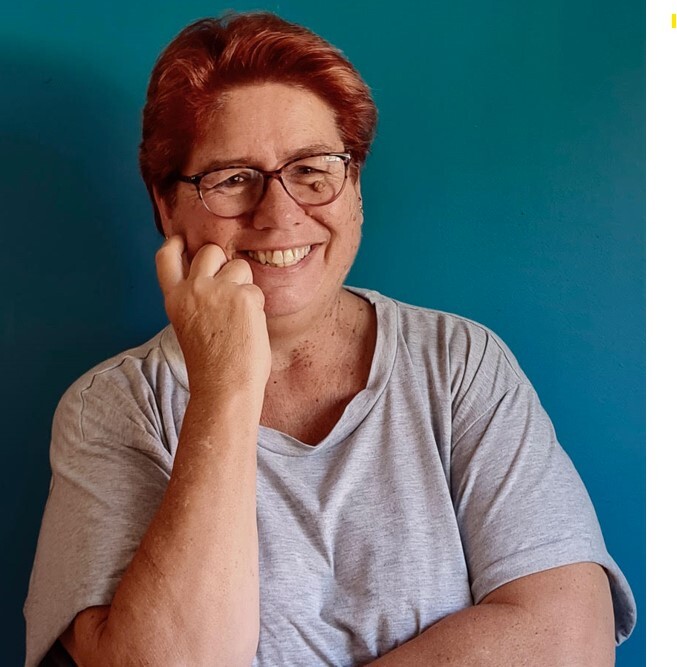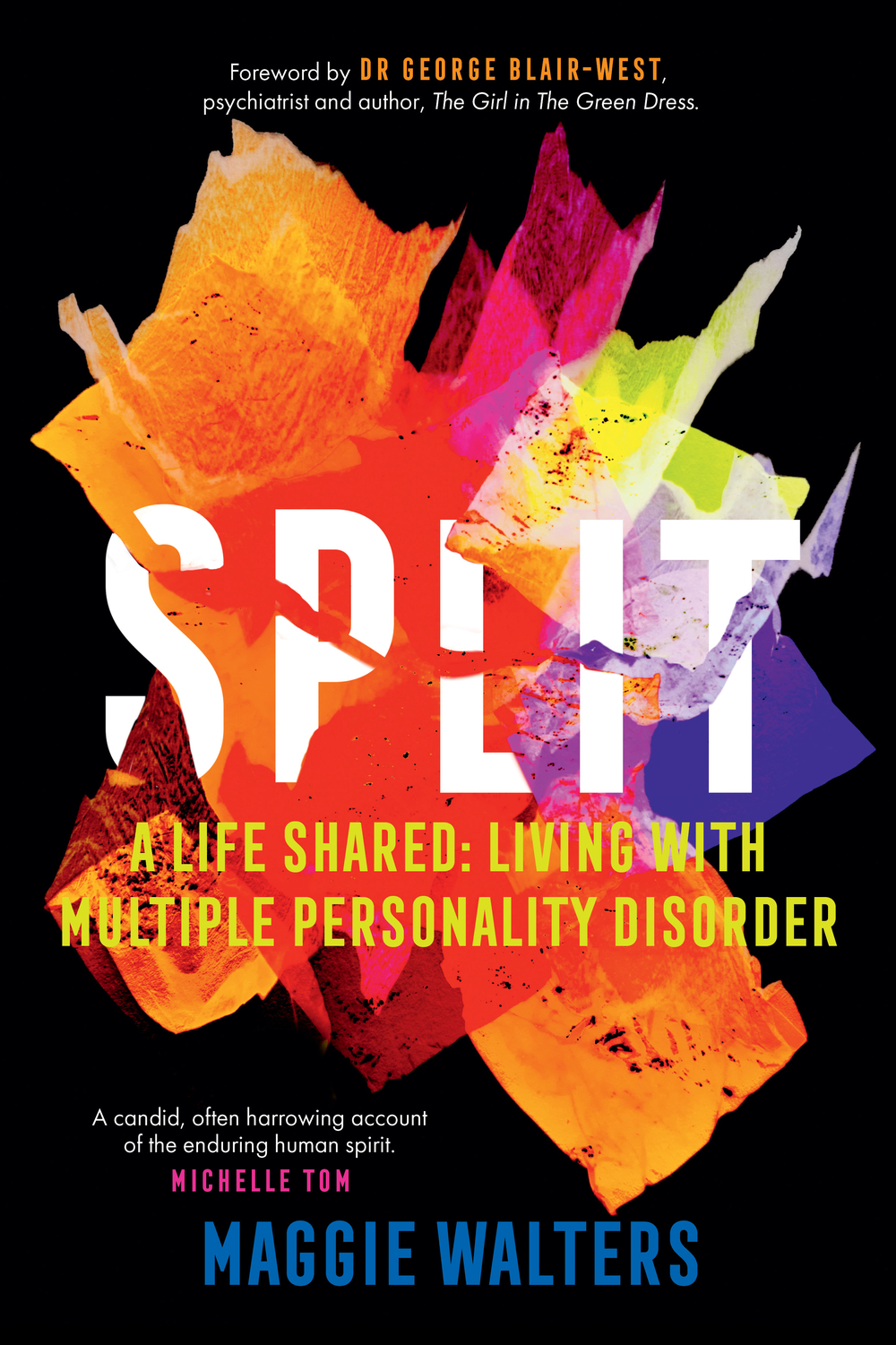Imagine living with a Multiple Personality Disorder? Maggie Walters is and has written a book about it
Lara Leahy
04 May 2024, 9:00 PM
 Split: The personal exploration of the complex trauma of Multiple Personality Disorder
Split: The personal exploration of the complex trauma of Multiple Personality DisorderMaggie Walters is bravely tackling her complex PTSD trauma in a very public way. She is writing a probing memoir and exposing the truth of her mental health condition - Dissociative Identity Disorder (D.I.D) or as it was previously known, Multiple Personality Disorder (MPD).
Her new novel, Split, is being released next week, and her experience is intriguing.
Maggie is aware of around 40 “alters” who are collectively known as “the girls”, although not all of them identify as female. Annie is referred to often, and is the lead personality.
They came about to handle the different situations she needed to endure in her young life. Maggie has given them pseudonyms in the book. She says, “To me, they are as real as you and I… and I need to respect their desire to be private, especially Annie, so that they feel understood.”
Maggie developed MPD (Maggie prefers the term MPD, as that was the term used when she was diagnosed) at the age of 3 when she suffered traumatic abuse inflicted by her parents and their friends. “Annie took over and basically lived (my life) from three till my early 30s. She is the system administrator. It was her responsibility to manage these other girls, let other girls or children be created to handle the abuse that was going on.”

The MPD diagnosis came when Maggie was in her late 20’s, and then as she started embarking on her life, Maggie met her future husband. “Annie fell in love straight away. She was pretty head over heels.”
Maggie describes Annie as “extremely pragmatic.” Before they had even discussed marriage, Annie “made sure that he was aware of who she was and her history and background.”
However, when the relationship succumbed to physical attraction, Annie felt she needed to protect Maggie once more and took over - for a period of 30 years, “I basically woke up after 30 odd years, sitting in the backseat of a car going Holy crap, what's going on?”
Was that time a complete blank? “No, it's not," Maggie replied, "The original working title of my book was called “Postcards from Home” because I have these snippets of memories. It's like postcards and Annie or the girls will share them with me whether I like it or not.”
“It is my history and there are times I wish it wasn't, but whether I experienced it, or Annie or the girls, it's still my brain. So no, I don't have a linear memory. But I've got snippets of things.”
Maggie has done a lot of soul-searching and is now firmly back in control. “It's been in the last eight years that I have had to learn how to manage my system.”
It is estimated that about 1.5% of the global population suffer from MPD, but it is often misdiagnosed. “It's because people automatically assume that if you hear voices, you're schizophrenic or bipolar and they think medication will fix it. Medication does not fix MPD.”
Maggie talks about how you develop MPD. “So you really can only develop MPD as a child. Your brain is malleable enough and not so hardwired that basically, as a kid, you have one way to escape from this and that is to disappear in your head. Most people who have MPD develop all their altars by the time they're probably 8 to 10, and then they live with them or they hide them away.”
Describing what living with MPD is like, Maggie says, “It's different. I've got a dysfunctional family in my head. I have no other way to say it.” We laugh as I comment that she must get on well with people.
Dealing with the girls, Maggie says, “There are layers. So I'm mostly in contact with Annie. She's the one who sits on my shoulder. She talks to me. Someone asked if it was like an inner child and I went, you know, your inner child, you can actually control. I have no control over her.” And at times, she didn’t, but now their relationship has become more stable.
“There were a few things that I did in the course of trying to understand who I was as someone with MPD that really pissed her off. We have an unsettled, unhappy relationship at best. She loves the book. She's really glad she had her say in it, and she believes it's an accurate representation of who we are.”
If an alter really doesn’t like something, they can play up, but not in the way that you think. Maggie has recently discovered another alter that doesn't like some of the themes in the book she is currently writing. “She actually hates Mother (one of the characters in the book), and she has caused me lots and lots of internal grief, that presents itself through anxiety - my jaw getting locked, my shingles acting up and all that sort of crap. They don't act out externally, but they certainly have their way with me”
Has Maggie come to terms with the girls and if, over time, they have become a more happy family? At which Maggie laughed heartily and said, “Most definitely not!. They go, oh she knows nothing! She just needs to go read the damn book!”
Maggie felt the need to write the book to provide hope for MPD survivors of trauma and to dispel mistruths expounded by Hollywood and the whodunnits that reveal some form of MPD alter ego as a perpetrator of a crime.
“The book’s not even out yet, and I've had three people come to me and either talk to me and say they know someone who's got D.I.D, or they are D.I.D and they've been hiding it. It's so affirming for them, to know that somebody else is talking about it.”
The first 50 pages of the book deal with the trauma that Maggie was subject to. She includes disclaimers in parts. Annie tells the story in this section, “Going off to Colorado because we were raised in Texas, going to school there. Things start falling apart, and then eventually she moved to Dallas where she saw a therapist who diagnosed her with MPD.”

The girls get their say. “I had to figure out how to let them talk. So I sat out on the patio and then I thought, I'm just going to vacate and let them write and just be the fingers on the keyboard. And I got this big huge chapter called Working Girl.”
Maggie talks about how exhausting writing this section was, “I was wasted when that was done because it's really emotionally full on. But I was really happy at the end of that because they've had their voice.
Poetry is used throughout the book to illustrate points, “I just find poetry a great way to express myself. It gets the emotions out there.” Maggie sounded really pleased when she related, “One of the girls has written a poem”
Maggie couldn't choose one favourite part of the book for herself, she chose one for Annie. “There's the chapters where I start therapy with shrink number two. And he unravels with Annie, her whole life as someone who's got MPD, and she comes out and that whole process of the system actually trusting him enough to come out.”
Maggie's own favourite is Narrative Therapy, “It really outlines how writing has been healing for me so this is me writing that.”
Maggie met a group of writers and while connecting with them, she shifted from writing fiction to a memoir. She started reading to them, excerpts from her book - this is the point in her life, about 4 years ago, when she started talking to other people about her condition.
You are invited to the launch of Split on May 16th. It takes place at the Sherwood Hotel, 75 Molesworth Street, from 6pm. Her book will be available for sale at the launch, or from the Book Warehouse in Lismore or Maggie's website.
Maggie Walters has always loved writing and is now a full time writer, and working on her second book on motherhood.

